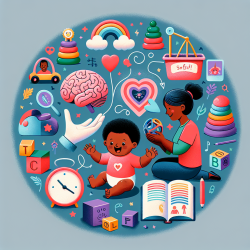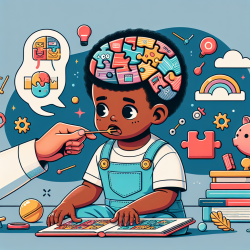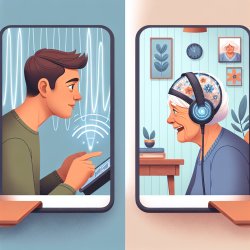Introduction
Music is a universal language that transcends boundaries, yet for cochlear implant (CI) users, the melody of life can often seem muted. The recent study titled "Meludia platform as a tool to evaluate music perception in pediatric and adult cochlear implant users" sheds light on the potential of the Meludia platform in bridging this gap. This blog explores how practitioners can harness these findings to enhance their skills and encourage further research in the field.
Understanding the Study
The study involved 138 participants, including children, adolescents, and adults, who were evaluated on their music perception using the Meludia platform. Five music perception tasks were assessed: Rhythm, Spatialization, Stable/Unstable, Melody, and Density. The study revealed that adolescent CI users performed exceptionally well, often matching their normal hearing (NH) peers in several categories.
Key Findings and Implications
- Adolescent Advantage: Adolescents outperformed both children and adults in most musical tasks, highlighting the potential for targeted interventions in this age group.
- Comparative Performance: Pediatric CI users showed similar performance to their NH peers, suggesting early intervention can yield significant benefits.
- Adult Insights: While adults reported less music exposure, the perceived importance of music was comparable to NH peers, indicating a strong intrinsic motivation to engage with music.
Implementing the Findings
For practitioners, the study underscores the importance of incorporating music training into rehabilitation programs for CI users. The Meludia platform, with its interactive and progressive exercises, can serve as an effective tool for enhancing music perception across age groups.
Practitioners are encouraged to:
- Integrate music perception tasks into regular therapy sessions.
- Utilize the Meludia platform to track progress and adapt training to individual needs.
- Encourage family involvement to create a supportive environment for music engagement.
Encouraging Further Research
While the study provides valuable insights, it also opens avenues for further research. Questions remain about the long-term impact of music training on CI users and the potential for technological advancements to enhance music perception further. Practitioners are urged to contribute to this evolving field by conducting longitudinal studies and exploring innovative training methods.
Conclusion
The Meludia platform offers a promising avenue for improving music perception in CI users, fostering a deeper connection to the world of sound. By implementing these findings, practitioners can play a pivotal role in enriching the lives of CI users, one note at a time.
To read the original research paper, please follow this link: Meludia platform as a tool to evaluate music perception in pediatric and adult cochlear implant users.










